Alimony Reform Measure in Florida and Upcoming Alimony Orders
 On July 2, 2023, Florida Governor Ron DeSantis signed the Alimony Reform Measure into law. This bill overhauls the state’s alimony laws. The new law eliminates permanent alimony, sets a five-year limit on rehabilitative alimony, and allows alimony payers to seek modifications under certain conditions.
On July 2, 2023, Florida Governor Ron DeSantis signed the Alimony Reform Measure into law. This bill overhauls the state’s alimony laws. The new law eliminates permanent alimony, sets a five-year limit on rehabilitative alimony, and allows alimony payers to seek modifications under certain conditions.
While the new alimony laws in Florida are clearer and more predictable, they are also controversial. They can aid in allowing both parties to part and move on after divorce, they can also be interpreted to be anti-women laws, as women are more likely to be awarded alimony, and they’re more likely to be homemakers and long-time caregivers – limiting their earning potential and options for self-sufficiency after divorce.
Regardless of whether you were for or against the reform, if you’re currently involved in a divorce proceeding in Florida, you’ll need to be aware of the differences and the impact the new laws may have on calculating Florida alimony.
What is Alimony Reform in Florida
 Alimony reform was proposed in Florida because the state’s previous alimony laws were seen as unfair to both spouses. For example, the previous laws allowed for permanent alimony, which meant that one spouse could be required to pay alimony to the other for the rest of their lives. This could be unfair to the spouse who was paying alimony, especially if they remarried or entered into a supportive relationship.
Alimony reform was proposed in Florida because the state’s previous alimony laws were seen as unfair to both spouses. For example, the previous laws allowed for permanent alimony, which meant that one spouse could be required to pay alimony to the other for the rest of their lives. This could be unfair to the spouse who was paying alimony, especially if they remarried or entered into a supportive relationship.
New Alimony Options and Definitions in Florida:
It’s important to note that these new alimony rules only apply to new alimony agreements, or old agreements wherein the parties agree to alimony modification.
Bridge-The-Gap Alimony
Bridge-the-gap alimony is a type of alimony that is intended to provide temporary financial assistance to a spouse who needs help transitioning to a new life after divorce. It can last for up to two years.
Bridge-the-gap alimony is typically awarded to spouses who:
- Are unable to become self-supporting after divorce without financial assistance
- Have a plan for becoming self-supporting, such as attending college or training for a new career
- Have made a good faith effort to become self-supporting
The amount of bridge-the-gap alimony is determined by a number of factors, including the length of the marriage, the spouses’ incomes, and their respective earning capacities. However, there is no set formula for calculating bridge-the-gap alimony. The amount of alimony is ultimately up to the judge’s discretion.
Bridge-the-gap alimony is often awarded in short-term marriages, where one spouse has been out of the workforce for a long period of time. It can also be awarded in longer-term marriages, if the spouse who is seeking alimony has been unable to find a job that pays enough to support themselves.
Once the bridge-the-gap period has ended, the alimony payments will typically stop. However, in some cases, the court may order that the alimony payments continue for a period of time after the bridge-the-gap period has ended in order to help the spouse transition to their new financial situation.
Examples Where Bridge-The-Gap Alimony May Be Awarded:
- A stay-at-home mother who has been out of the workforce for 10 years and wants to return to work
- A spouse who has been laid off from their job and needs to retrain for a new career
- A spouse who has a disability that prevents them from working full-time
It is important to note that whether or not a spouse is awarded bridge-the-gap alimony is ultimately up to the judge. The judge will consider all of the relevant factors and make a decision based on what they believe is fair.
Durational Alimony
 Durational alimony is intended to provide long-term financial support to a spouse who is unable to become self-supporting after divorce. The amount and duration of durational alimony is determined by a number of factors, including the length of the marriage, the spouses’ incomes, and their respective earning capacities. However, the maximum duration of durational alimony is now capped at five years.
Durational alimony is intended to provide long-term financial support to a spouse who is unable to become self-supporting after divorce. The amount and duration of durational alimony is determined by a number of factors, including the length of the marriage, the spouses’ incomes, and their respective earning capacities. However, the maximum duration of durational alimony is now capped at five years.
Examples Where You May Be Eligible For Durational Alimony:
A woman who was a stay-at-home mother for 20 years and still has young children. She has a college degree, but she has not worked outside the home in many years. She is able to find a job, but she would only be able to earn a low wage. The length of the marriage in this case is 20 years, which is considered a long-term marriage under Florida law. The woman’s low earning capacity and her responsibility for caring for young children would also be considered factors in determining whether she is eligible for durational alimony.
A man who was injured in a car accident and is now disabled. He is unable to work and has no earning capacity. The man’s disability would be a significant factor in determining whether he is eligible for durational alimony. The length of the marriage in this case is not specified, but it would be relevant to the judge’s decision.
Old Alimony Options and Definitions in Florida Prior to June 2023
As stated above – the old Florida alimony options are still available and in place for orders granted prior to the new law. Those old orders will stay in effect until their duration expires, a spouse who was awarded permanent alimony passes away, or both parties agree to modify the existing alimony orders.
Rehabilitative Alimony
Rehabilitative alimony in Florida was designed as a type of alimony intended to help a spouse become self-supporting after divorce. It is typically awarded to spouses who have been out of the workforce for a long period of time or who need to acquire new skills or education in order to find a job that pays enough to support themselves.
The amount and duration of rehabilitative alimony was determined by a number of factors, including the length of the marriage, the spouses’ incomes, and their respective earning capacities. However, the maximum duration of rehabilitative alimony is now capped at five years under the new Florida alimony law.
Permanent Alimony
Permanent alimony, also known as lifetime alimony, was a type of alimony that is paid until the death of the recipient spouse, the recipient spouse remarries, or the recipient spouse enters into a supportive relationship. Permanent alimony was available in Florida prior to the new law, but it was not always awarded.
To be eligible for permanent alimony in Florida, a spouse had to show that they were unable to become self-supporting after divorce. This could be shown by factors such as the spouse’s age, health, education, and earning capacity. The spouse also had to show that they had made a good-faith effort to become self-supporting.
The amount of permanent alimony was determined by a number of factors, including the length of the marriage, the spouses’ incomes, and their respective earning capacities. However, there was no set formula for calculating permanent alimony. The amount of alimony was ultimately up to the judge’s discretion.
Now with the new alimony reform measures, there are vast differences in permanent vs. temporary alimony.
How Is My In-Progress Divorce Impacted By The New Florida Alimony Laws
 The new alimony laws in Florida went into effect on July 1, 2023. If your divorce was filed or pending on or after that date, the new laws will apply to your case. If you filed for an annulment, alimony is not granted in a marriage annulment.
The new alimony laws in Florida went into effect on July 1, 2023. If your divorce was filed or pending on or after that date, the new laws will apply to your case. If you filed for an annulment, alimony is not granted in a marriage annulment.
Here are some additional things to keep in mind about the new alimony laws in Florida:
- The new laws apply to all initial petitions for dissolution of marriage that are filed or pending on July 1, 2023, and to certain supplemental petitions for modification of alimony.
- The new laws do not apply to alimony that was awarded before July 1, 2023.
- The new laws are subject to change, so it is important to stay up-to-date on the latest developments.
As always, the type, amount, and duration of an alimony award is set by the judge’s discretion. If you are seeking durational alimony, you must meet the eligibility requirements, and the judge must determine you are due this longer-term option.
Here are some other factors that a judge might consider when deciding whether to award durational alimony:
- The age and health of the spouses
- The educational level of the spouses
- The spouses’ earning potential
- The spouses’ contributions to the marriage
- The standard of living the spouses enjoyed during the marriage
How Is My Current Alimony Order Impacted By The New Florida Laws?
The new Florida alimony laws do not impact current alimony orders. These laws only apply to alimony orders that are entered after the law went into effect on July 2, 2023.
If you have a current alimony order, it will continue to be governed by the laws that were in place when the order was entered. This means that if your alimony order is for permanent alimony, it will not be affected by the new law. However, if your alimony order is for durational alimony, the maximum duration of the alimony payments may be capped at five years under the new law.
The new alimony law in Florida is a significant change from the old law. It is designed to be more fair to both spouses and to encourage them to become self-supporting after divorce. The law is still relatively new, so it is too early to say what its long-term impact will be. However, it is clear that the new law is a major overhaul of Florida’s alimony laws. If you are concerned about how the new alimony laws may affect your current or upcoming divorce plans, please call today and discuss your case with an experienced Orlando alimony lawyer near you at the Sean Smallwood Orlando Divorce and Family Law firm. Be sure to also check out our Florida alimony calculator to help you get a better understanding of what your spousal support obligations can look like.


